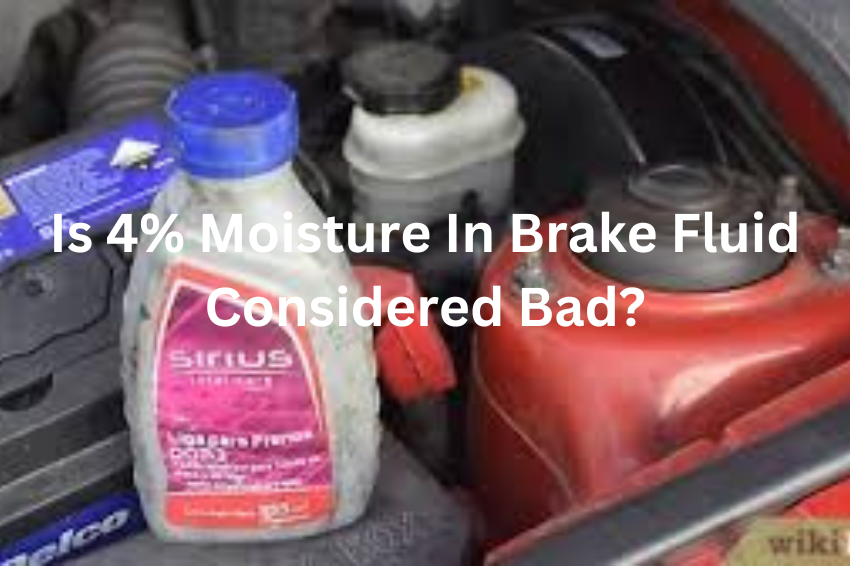4% moisture in brake fluid can be dangerous to car safety. Brake fluid absorbs moisture (hygroscopic), lowering its boiling point (critical for heat dissipation during braking), which can lead to a spongy pedal feel and reduced braking performance, especially in demanding situations.
Should I Change My Brake Fluid If It Has 4% Moisture?

It depends on a few factors:
Manufacturer Recommendations:
Your car’s manual is the best place to start.
It will specify a recommended moisture content level for your specific vehicle and brake fluid type (e.g., DOT 3, DOT 4).
Some manufacturers may recommend replacing the fluid at a lower moisture percentage than 4%, especially for high-performance vehicles or those used for towing.
Driving Habits:
If you drive in particularly demanding conditions, like frequent towing, aggressive driving, or mountainous terrain, your brake fluid may need to be changed more often.
These conditions put extra stress on the braking system and can lead to a faster increase in moisture content.
Ultimately, your brakes are essential for safe driving.
If you’re concerned about the performance of your brakes or the moisture level in your fluid, it’s always best to err on the side of caution.
Check the recommended moisture level for brake fluid replacement in your specific vehicle.

If you engage in frequent towing, aggressive driving, or mountain driving, replacing the fluid sooner might be wise.
And, If you’re unsure or uncomfortable checking the moisture level yourself, consult a mechanic or brake service center.
They can test your brake fluid and advise you on whether a replacement is necessary.
What Are The Risks Of Driving With High Moisture In Brake Fluid?
Driving with brake fluid that has a high moisture content can be very risky.
The main danger of high moisture in brake fluid is that it can significantly reduce your braking performance.
As mentioned earlier, brake fluid absorbs moisture over time, which lowers its boiling point.
This boiling point is important because your brakes generate a lot of heat during use.
If the boiling point gets too low due to moisture, the fluid can boil and create vapor bubbles in the brake lines.
These vapor bubbles are compressible, unlike brake fluid, which means they can make your brake pedal feel spongy when you press it.
This spongy feeling reduces the amount of force that gets transferred to your brakes, making it harder to slow down the car effectively.
In critical situations requiring heavy braking, like avoiding an accident or stopping suddenly on a busy highway, this reduced braking performance can be extremely dangerous.
In extreme cases, especially with very high moisture content, the boiling of the brake fluid can be so severe that it creates a complete brake failure.
This means that pressing the brake pedal might have little to no effect on slowing down the car, which is a terrifying scenario that can lead to serious accidents.

Moisture can also distribute unevenly throughout the brake system, leading to uneven braking force on different wheels.
And, this can cause the car to pull to one side during braking, making it difficult to maintain control of the vehicle.
Don’t wait until you experience these risks to address your brake fluid.
